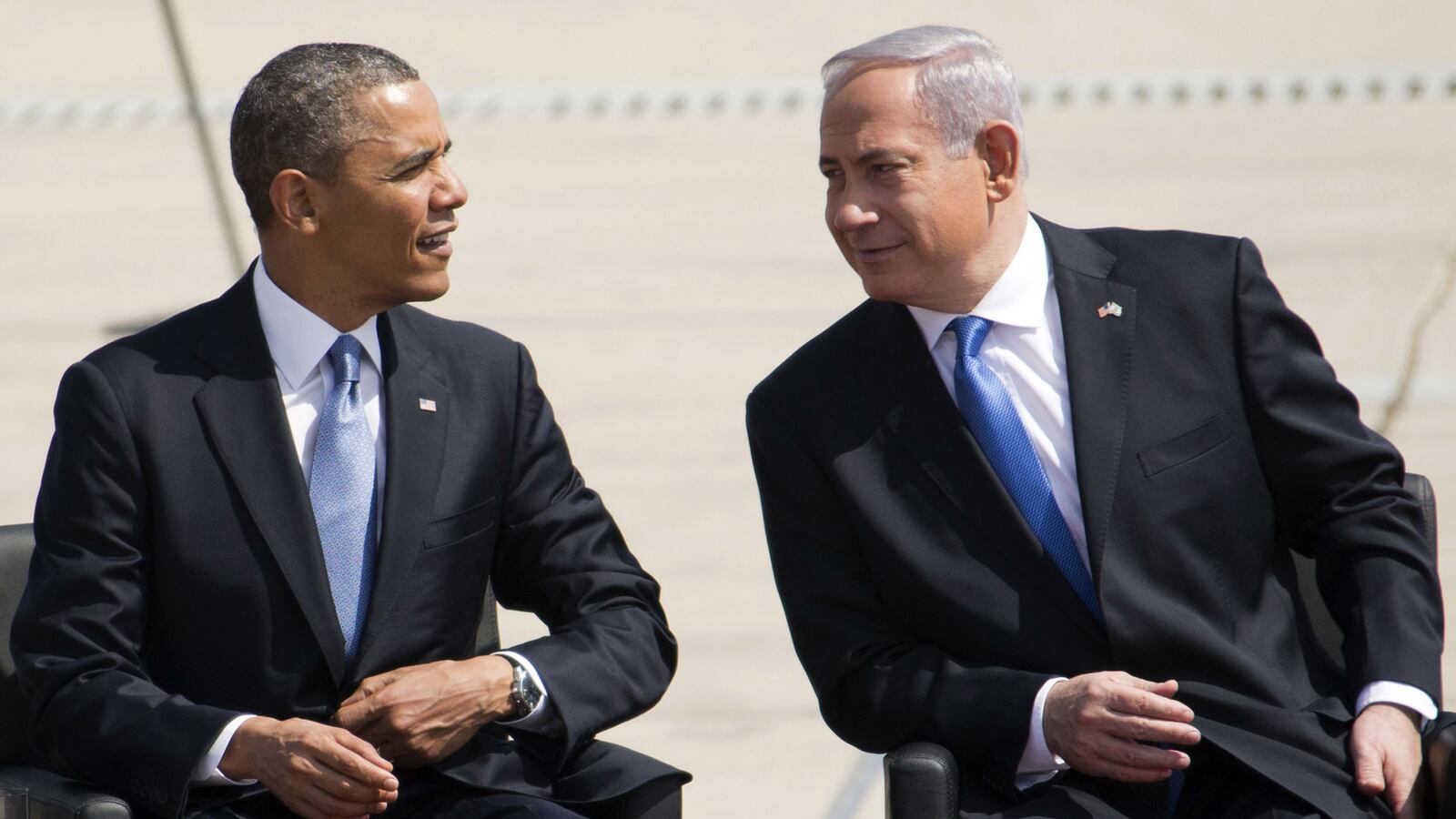There is widespread speculation about the purpose behind President Barack Obama’s trip to Israel. When it was first announced, I thought it was a catch-all visit designed to accomplish several objectives at once. I still think it has been primarily to reset relations with Prime Minister Benjamin Netanyahu, mostly because there’s been no indication that any major policy announcements or changes are coming.
It’s too early to say that the visit has been a success (since it isn’t over yet), but up to this point Obama has said all the right things in Israel, and Netanyahu has shown appreciation for it.Sure signs of the comfort level the two have achieved (though Ron Kampeas is right that Obama is acting more at ease than Bibi) are the constant handshakes and touching, gentle mocking of each other’s appearance, consistent (even intensive) use of each other’s first name, and other seemingly minor things.

It’s certainly true, as David Horovitz points out, that there are still real differences between the two on Iran and the peace process. But in the world of diplomacy, personal relations between leaders matters. Yes, the American-Israeli relationship—like any inter-state relationship—is founded on multiple connections, but leaders who are more comfortable and familiar with each other are more likely to account for their counterparts’ anxieties, listen to their ideas, and coordinate joint concerns with them. Leaders with a more hostile or tense personal relationship will be less able or interested in doing any of these things.
For all the talk of necessary even-handedness, there is still a deep element of uncertainty and mistrust in the Jewish-Israeli psyche. It gets dismissed as an excuse all too often, and certainly it is sometimes used as one by some, but that doesn’t mean Israelis don’t have real worries. The “filter of security” (to use Alan Dowty’s term) matters very much for Israeli leaders. Its intensity varies across them, but sensing a strong connection with the United States and, yes, its leaders goes a long way to making Israeli decision-makers feel comfortable enough to take what they see as risks for regional peace and security.
Obama’s trip has, thus far, done this for Bibi. I expect the two will try to be more careful about directly offending each other as they continue to spar over Iran and the peace process. This will matter very much as these fundamental differences come into play more directly in the months ahead. There’s no papering over the fact that the Iranian nuclear program will have to be addressed head-on at some point—the simmering nature of the status quo won’t work for Israel. I suspect that deep down, Bibi still believes he’s right and that Iran will have to be dealt with militarily at some point. The fact that Israel’s new government is composed of several members committed to the settlements and opposed to a Palestinian state will also soon clash with domestic and external pressure to withdraw from the former and actively work toward the latter.
Personal commitments to each other will come into play on these issues, and they will matter. There’s no disguising the fact that over the course of the last year or so, after each time they’ve met or spoken Bibi has moved a little closer to Obama’s position on Iran. They’ve learned the lessons of their early clashes.
At his press conference with Palestinian President Mahmoud Abbas today, Obama said some things that would normally make Bibi very uncomfortable and tense. Obama directly called for an end to the occupation and the suffering it imposes on Palestinians. He also said the U.S. is committed to a Palestinian state (alongside a Jewish one). These notions, anathema to many in Bibi’s government, will be easier for the prime minister to absorb because Obama made the trip out to Israel.
At Slate, Janine Zacharia called Obama’s trip “One Big Mistake,” arguing that it was “burning crucial American political capital.” I’d suggest that, in fact, the opposite is happening.






